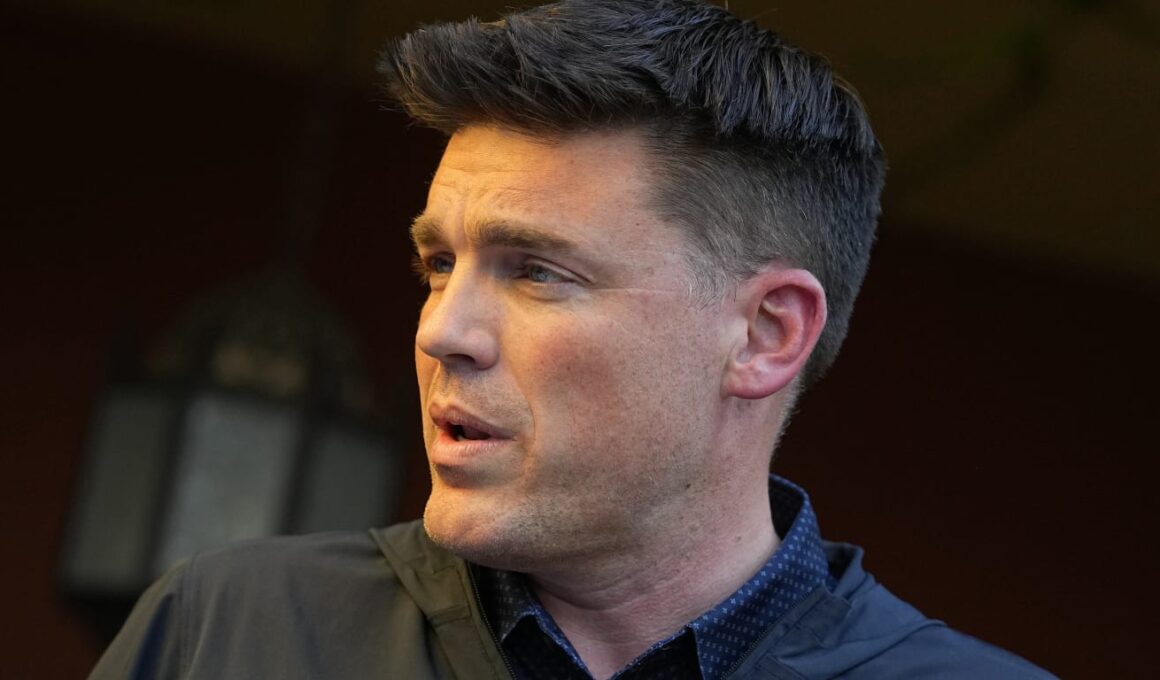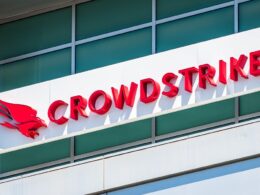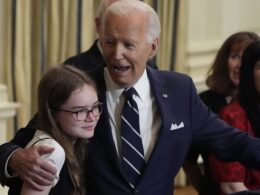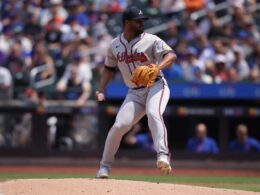Here’s why Rays have been busy this Deadline
ST. PETERSBURG — Before making a succession of surprising trades with their future in mind, the Rays looked to their past.
Tampa Bay still hasn’t accomplished its ultimate goal of winning a World Series. It still believes that the best path to that point is reaching the postseason as often as possible. And it has come to appreciate this year that it’s not easy to play in October every season.
The Rays have played better lately, winning 21 of their last 35 games while going 9-1-1 in their last 11 series. They’re two games above .500 (54-52) for the first time in more than two months (25-23 on May 19), and one win away from matching their season-high mark (25-22 on May 18).
But they’re still 8 1/2 games behind the division-leading Orioles (63-44) and 3 1/2 games out of the final American League Wild Card spot, with the Red Sox (56-49) and Mariners (56-52) standing between them and the Royals (58-49). Baseball-Reference gives the Rays a 5.2% chance to make the playoffs and a 0.1% chance to win the World Series. The odds are slightly more favorable at FanGraphs: 13.4% for the postseason and 0.6% for the World Series.
“I have a responsibility to try to get this team to a World Series,” president of baseball operations Erik Neander said Friday afternoon, after trading Randy Arozarena to the Mariners and Zach Eflin to the Orioles. “Ideally, we stay all-in on this year and we strengthen our future, but we have to make some difficult choices.”
This is where Neander pointed to Tampa Bay’s history. The Rays are riding a streak of five consecutive playoff appearances, but they had some lean years between this run and their initial success from 2008-13. They missed out on the postseason every year from 2014-18.
“We don’t want 2024 to be 2014, don’t want 2029 to be 2019,” Neander said. “Don’t want to go five years without a playoff appearance, so these decisions were made to make sure that we don’t fall off and it doesn’t take us five years to find our way back.”
This was expected to be a trade market light on sellers and even lighter on sellers with much to offer, but there are many motivated buyers and plenty of teams caught in the middle. The Rays aggressively stepped in to fill that void, disassembling a team that’s hovered around .500 all year in hopes of building better ones in the future.
They’ve made seven trades (and counting) this month that have sent out established Major League players: Aaron Civale, Phil Maton, Arozarena, Eflin, Jason Adam, Isaac Paredes and Amed Rosario. They’ve shed payroll and future commitments from the most expensive roster they’ve assembled and added a bunch of prospects to their system.
It will take years before we truly know if the Rays “won” these trades, primarily because they acquired so many young prospects far from the Majors. Even the deal that will most directly impact their big league roster right away — Paredes to the Cubs for Christopher Morel, Hunter Bigge and pitching prospect Ty Johnson — involves players under club control until the final years of this decade.
Regardless, the Rays have clearly strengthened their Minor League system, which must either produce big leaguers or prospects who can help them acquire some. Nine of the prospects they’ve acquired immediately jumped into their Top 30 Prospects list, according to MLB Pipeline.
The Rays are clearly a worse team on paper today than they were before Arozarena went to Seattle. Since their plane returned from Toronto early Friday morning, they’ve parted with their star left fielder, their innings-eating Opening Day starter, their 2024 All-Star, their most consistent reliever and a useful role player.
But they still expect to remain competitive on the field. They took two of three from the Reds over the weekend while the front office was completing all those trades. Jeffrey Springs will make his season debut on Tuesday. There should be an opening for Junior Caminero (the Rays’ No. 1 prospect, No. 3 overall) to earn regular playing time. Drew Rasmussen (right elbow surgery recovery) will return in the bullpen. He’s on a rehab assignment with Triple-A Durham.
When trading Paredes, Neander said, “It was important to identify a deal for players we really liked and believed that their best was going to be right ahead of them and that could impact our Major League club.” The Rays seem to have done that. Evaluators believe Bigge will become an impact bullpen arm. Morel has plenty of talent, and it’s usually a good sign when the Rays land someone they say they’ve been trying to acquire for a long time.
Next year, ace Shane McClanahan (recovering from Tommy John surgery) should be back to headline a rotation that could also feature Taj Bradley ( the hottest pitcher in MLB right now), Springs, Rasmussen, Ryan Pepiot, Shane Baz and others. It’ll be on the Rays to make sure that 2025 isn’t 2015.
“We’re going to keep doing our best to win games this year,” Neander said. “It will be harder … but our outlook for the next three, five, seven years is considerably stronger with what we brought in.”









